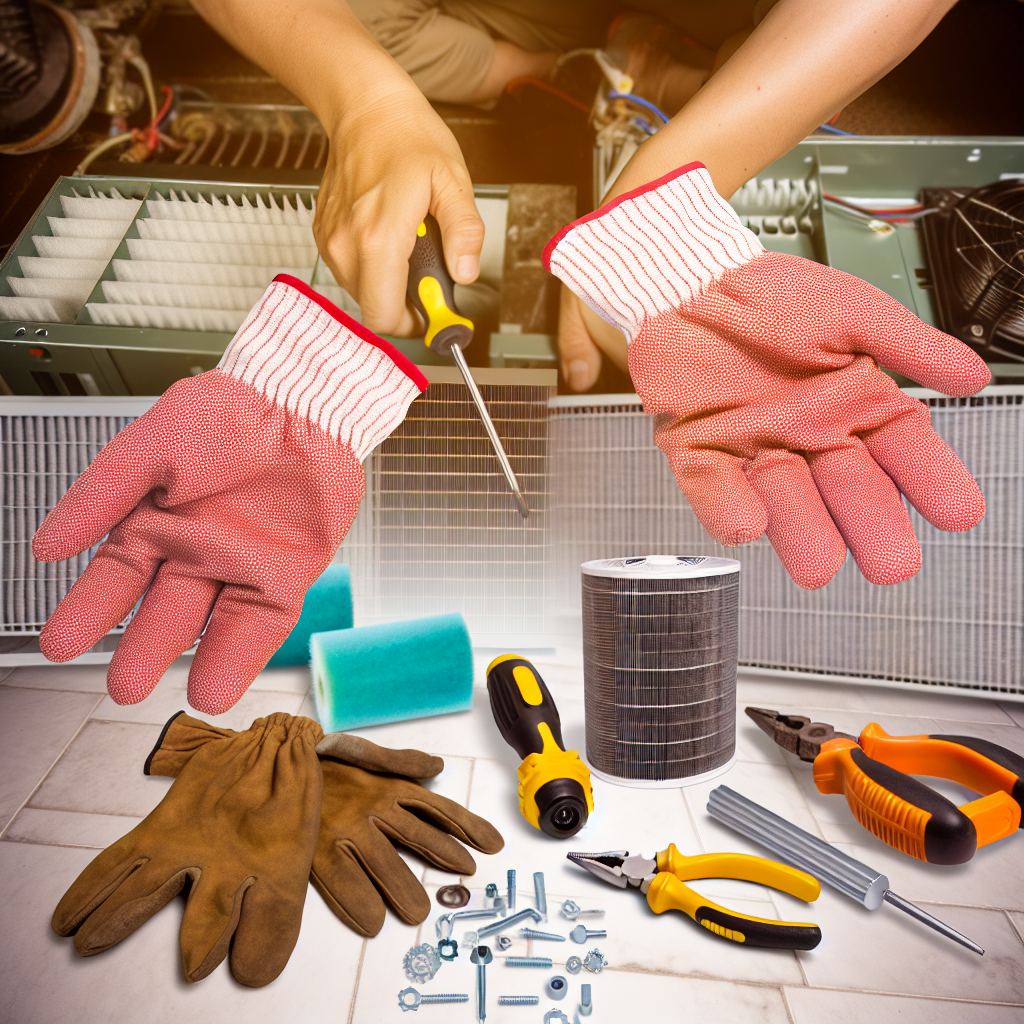Published: Mar 05, 2025

As a homeowner, taking care of your HVAC system is essential to ensure it runs efficiently and effectively. Regular maintenance not only prolongs the lifespan of your HVAC unit but also helps you save money on energy bills in the long run. While it's always best to have a professional HVAC technician handle complex repairs and maintenance tasks, there are several simple DIY maintenance tips you can follow to keep your system in top condition. In this blog post, we'll discuss some DIY HVAC maintenance tips that every homeowner should know.
One of the most important and easiest maintenance tasks you can do for your HVAC system is to regularly change the air filters. Clogged or dirty filters can restrict airflow, making your system work harder and less efficiently. It's recommended to check your filters every 1-3 months and replace them if they appear dirty.
The outdoor unit of your HVAC system can accumulate dirt, leaves, and debris, which can hinder its performance. Regularly clean the area around the outdoor unit and remove any obstructions to ensure proper airflow. You can use a hose to gently clean the unit but be cautious not to damage any components.
Inspect your air vents and ducts for any blockages or obstructions that may hinder airflow. Ensure that air vents are not blocked by furniture or other items and vacuum any dust or debris that has collected inside the vents. A clean and unobstructed airflow will help your HVAC system operate efficiently.
While there are many DIY tasks you can perform, it's crucial to have a professional HVAC technician inspect your system at least once a year. A professional inspection can identify any potential issues early on and ensure that your system is running smoothly. Regular maintenance by a professional can help prevent costly repairs down the line.
The indoor unit of your HVAC system needs proper airflow to function efficiently. Make sure there are no obstructions around the indoor unit such as furniture, curtains, or other items that can block airflow. Maintaining proper clearance around the indoor unit can help improve its performance.
Keeping an eye on your thermostat settings can help you maintain a comfortable indoor environment while also saving energy. Consider investing in a programmable thermostat that allows you to set specific temperatures for different times of the day. This way, you can reduce energy consumption when you're not at home.
Leaky ducts can result in energy waste and inefficient heating or cooling. Inspect your ductwork for any visible leaks or loose connections. You can use duct sealant or foil tape to seal any leaks and ensure that your HVAC system delivers conditioned air efficiently.
The condenser coils in your outdoor unit can collect dirt and debris over time, reducing the system's efficiency. Periodically inspect the coils and clean them using a soft brush or a vacuum cleaner. Be gentle to avoid bending the coils and reduce the risk of damaging the unit.
Taking care of your HVAC system through regular maintenance is vital to ensure its longevity and efficiency. By following these DIY HVAC maintenance tips, you can keep your system running smoothly and potentially save on energy costs in the long term. Remember that while DIY maintenance is beneficial, it's essential to schedule annual professional inspections to address any underlying issues and keep your HVAC system in optimal condition.
Remember, a well-maintained HVAC system not only provides comfort but also saves you money in the long run by improving energy efficiency and preventing costly repairs.

Our expert technicians are ready to assist you 24/7!
Contact Us Today!Read our latest articles for helpful information about heating, cooling, and air quality.
Regular HVAC maintenance is crucial for keeping your system running smoothly, avoiding costly repairs, and improving ene...
Read MoreUpgrading to energy-efficient HVAC systems through measures like programmable thermostats, duct sealing, high-efficienc...
Read MoreImplementing strategies such as regular cleaning, humidity control, ventilation, air purification, and allergen prevent...
Read MoreInstalling a smart thermostat in your home can enhance comfort, optimize energy efficiency, and provide long-term cost s...
Read More